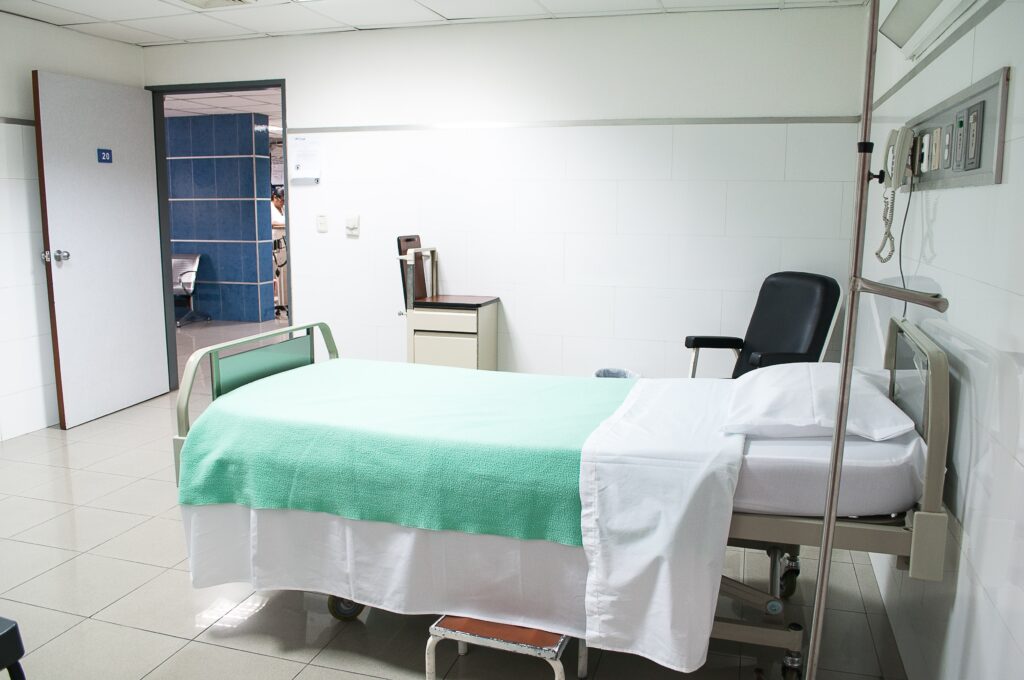

As we journey through life, Women’s Health Stages women experience a series of unique and transformative stages that profoundly impact our health and well-being. From the adolescent years, marked by the onset of puberty, to the reproductive years filled with the joys and challenges of menstruation, pregnancy, and childbirth, to the menopausal stage that signals the end of fertility, the Women’s Health stages phase presents its own set of physical, emotional, and social changes. Understanding and embracing these different stages are essential for maintaining and promoting women’s health across the lifespan. In this article, we explore the various stages of a woman’s life and the key considerations for taking care of ourselves at every step of the way.
Prenatal Stage
Conception
The prenatal stage of a woman’s life begins with conception, the moment when an egg is fertilized by sperm. This is often a joyous and exciting time for couples as they anticipate the arrival of their baby.
It is important to note that conception can occur when a woman has sexual intercourse and sperm enters her reproductive system. The fertilized egg then implants itself in the uterus, where it begins to develop into an embryo.
First Trimester
The first trimester of pregnancy is a crucial period of development for the baby. During this time, significant changes are happening in the mother’s body as well. The embryo grows rapidly, and its major organs and body systems begin to form.
Many women experience common symptoms during this time, such as morning sickness, fatigue, and breast tenderness. Women need to take care of their health during this stage by maintaining a balanced diet, getting regular prenatal check-ups, and avoiding substances that could harm the developing baby.
Second Trimester


This image is property of images.unsplash.com.
The second trimester is often referred to as the “golden period” of pregnancy. By this stage, the baby has developed significantly, and the mother usually starts to feel better as some of the first-trimester symptoms subside.
This is a time when the baby’s movements become more noticeable and the mother begins to bond with her growing child. Women need to continue taking care of their health by eating nutritious foods, staying active with moderate exercise, and getting plenty of rest.
Third Trimester
The third trimester is the final stage of pregnancy, and the baby’s development is now focusing on growth and maturity.
The mother’s body also undergoes significant physical changes to accommodate the growing baby. Many women experience discomfort during this time, such as back pain, swelling, and difficulty sleeping.
Women must listen to their bodies and take the necessary steps to maintain their health. This may include eating smaller, more frequent meals, practicing relaxation techniques, and attending prenatal classes to prepare for labor and delivery.
Childbirth Stage
Labor
Labor is the process by which the baby is born. It is a dynamic and unpredictable stage that can last for hours or even days. It begins with contractions, which are rhythmic tightening and releasing of the uterus.
These contractions help to dilate the cervix and facilitate the baby’s passage through the birth canal. During labor, women may experience intense pain and discomfort. They need to have a support system in place, which may include a partner, family members, or a healthcare provider, to provide emotional and physical support.
Delivery
Delivery is the moment when the baby is born. It is often a highly emotional and exhilarating experience for both the mother and her support team. There are different methods of delivery, including vaginal delivery and cesarean section.
Vaginal delivery is the most common method, where the baby passes through the birth canal. Cesarean section, also known as C-section, involves surgical delivery through an incision in the mother’s abdomen. Regardless of the delivery method, the primary goal is to ensure the safe arrival of a healthy baby.
Postpartum


This image is property of images.unsplash.com.
The postpartum period begins immediately after childbirth and extends for up to six weeks. During this time, the mother’s body undergoes extensive physical and hormonal changes as it adapts to the post-pregnancy state.
Many women experience physical discomfort, such as vaginal soreness, bleeding, and breast engorgement. Emotionally, the postpartum period can be challenging as well, with many women experiencing mood swings, fatigue, and baby blues. Women need to receive proper postpartum care, including regular check-ups, emotional support, and guidance on breastfeeding and newborn care.
Adolescence Stage
Puberty
Puberty marks the beginning of adolescence and is a period of significant physical changes in a girl’s body. It typically begins between the ages of 8 and 14 and is characterized by the development of secondary sexual characteristics, such as breast development, the growth of pubic and underarm hair, and the onset of menstruation.
It is essential for girls to have open and supportive discussions about puberty with their parents or trusted adults to understand and manage these changes effectively.
Menstruation
Menstruation, also known as a period, is a monthly process where the lining of the uterus is shed through the vagina. It is a biological process that prepares a woman’s body for potential pregnancy. It usually starts around the age of 12 to 14 and continues until menopause, which typically occurs around the age of 45 to 55.
Menstruation brings about hormonal fluctuations, physical discomfort, and emotional changes. Young girls need to learn about menstrual hygiene, use appropriate sanitary products, and seek medical advice if they experience any abnormal symptoms or irregularities.
Emotional and Psychological Changes
Adolescence is a time of immense emotional and psychological changes. Hormonal fluctuations during puberty can lead to mood swings, increased sensitivity, and heightened self-consciousness.
Young girls may also experience changes in their relationships, peer pressure, and academic stress. Girls must have a supportive network of friends, family, and mentors who can provide guidance and reassurance during this transition.
Encouraging open communication and fostering a positive body image are also key factors in promoting emotional well-being.
Sexuality Education


This image is property of images.unsplash.com.
During adolescence, sexual education becomes an essential aspect of a young woman’s health. This education should cover topics such as reproductive health, contraception, sexually transmitted infections (STIs), consent, and healthy relationships.
Providing comprehensive and accurate information empowers girls to make informed choices and promotes sexual health throughout their lives. Schools, parents, and healthcare providers need to collaborate in ensuring that girls receive age-appropriate and inclusive sexuality education.
Young Adulthood Stage
Reproductive Health
Reproductive health encompasses the physical, emotional, and social well-being of individuals throughout their reproductive years.
It involves various aspects such as menstrual health, fertility, pregnancy planning, and sexual health. Young women should prioritize their reproductive health by practicing safe sex, getting regular check-ups, and addressing any concerns related to menstruation, fertility, or sexual health.
Contraception
Contraception plays a vital role in enabling women to make informed choices regarding family planning. There are various contraceptive methods available, including hormonal options such as birth control pills, patches, and injections, as well as barrier methods such as condoms and intrauterine devices (IUDs).
Young women need to have access to accurate information about contraception, understand their options, and consult with healthcare professionals to determine the most suitable method for their lifestyle and reproductive goals.
Sexual Awareness
Young adulthood is a time when individuals explore their sexuality and develop healthy attitudes and behaviors. Young women need to have a comprehensive understanding of consent, communication, and healthy relationships.
Promoting sexual awareness involves addressing topics such as sexual orientation, gender identity, body positivity, and consent education. Creating a safe and inclusive environment for open discussions around sexuality can e
mpower young women to make informed decisions based on their values and preferences.
Breast Health


Breast health is a significant aspect of women’s overall well-being. Young women should develop habits that promote breast health, like performing regular breast self-examinations and seeking medical attention if they notice any changes or abnormalities.
Regular screenings, such as mammograms, may be recommended for certain age groups or individuals with specific risk factors. Early detection of breast issues, including breast cancer, can greatly improve the chances of successful treatment and recovery.
Middle Adulthood Stage
Menopause
Menopause is a natural biological process that marks the end of a woman’s reproductive years. It typically occurs between the ages of 45 and 55 and is characterized by the cessation of menstruation.
Menopause brings about a decline in reproductive hormones, which can lead to various physical and emotional symptoms, such as hot flashes, mood swings, and changes in sexual desire.
Women need to seek support and guidance from healthcare professionals to manage these symptoms effectively and maintain overall well-being during this transition.
Bone Health
Middle adulthood is a critical time to prioritize bone health. As women age, there is a gradual loss of bone density, which can increase the risk of osteoporosis and fractures.
Women need to engage in weight-bearing exercises, consume a balanced diet rich in calcium and vitamin D, and avoid tobacco and excessive alcohol consumption.
Regular bone density screenings may also be recommended to assess bone health and determine the need for preventive measures or treatment.
Heart Health
Heart disease is a leading cause of mortality among women, especially after menopause. Women must adopt heart-healthy habits, such as regular exercise, maintaining a healthy weight, consuming a balanced diet low in saturated fats and cholesterol, and managing stress.
Regular check-ups and screenings can help identify and manage risk factors, such as high blood pressure, high cholesterol, and diabetes, which can contribute to heart disease.
GOBIOTIX Super Greens Powder Review
Mental Health


Middle adulthood is a stage where women may face various challenges that can impact their mental well-being. These challenges may include balancing work and family responsibilities, managing relationships, and navigating life transitions.
Taking care of mental health involves seeking support when needed, practicing self-care, maintaining social connections, and seeking professional help if experiencing symptoms of anxiety, depression, or other mental health conditions.
Senior Stage
Osteoporosis
Osteoporosis is a condition characterized by the loss of bone density, making bones porous and fragile. It is common among elderly women and can increase the risk of fractures. To promote bone health and prevent osteoporosis, seniors should continue engaging in weight-bearing exercises, consuming a calcium-rich diet, and considering supplements if needed.
Regular screenings and consultations with healthcare professionals can help monitor bone density and customize preventive measures or treatment plans.
Kaged Outlive 100 | Organic Superfoods | Greens Powder Review
Breast and Ovarian Cancer
Breast and ovarian cancer are two significant health concerns for senior women. Regular breast screenings, including mammograms, and understanding the signs and symptoms of breast cancer are crucial for early detection.
Similarly, awareness of ovarian cancer symptoms, such as bloating, pelvic pain, and changes in bowel habits, can facilitate prompt medical attention. Seniors should consult with healthcare professionals to assess their risk factors and establish appropriate screening schedules.
Cardiovascular Disease
Cardiovascular disease remains a leading cause of death among women, including those in their senior years. Seniors should continue to prioritize heart health by maintaining a healthy lifestyle, including regular physical activity, a heart-healthy diet, and stress management techniques.
Routine check-ups and screenings for blood pressure, cholesterol levels, and other cardiovascular risk factors can help detect and manage potential issues early on.
Yogi Superfoods Organic Spirulina Powder Review
Cognitive Health
Cognitive health is essential for maintaining independence and overall well-being in the senior stage. Seniors should engage in activities that stimulate the mind, such as puzzles, reading, and social interactions.
It is important to maintain a balanced and nutritious diet, exercise regularly, manage chronic diseases, and stay connected to a supportive social network. Regular cognitive screenings and discussions with healthcare professionals can help identify and address any cognitive changes or concerns.
In conclusion, women experience various stages of life that significantly impact their health and well-being. From the prenatal stage through menopause and beyond, women need to prioritize their physical, emotional, and reproductive health.
By staying informed, seeking appropriate care, and maintaining healthy habits, women can navigate each stage with confidence and maximize their overall quality of life.







